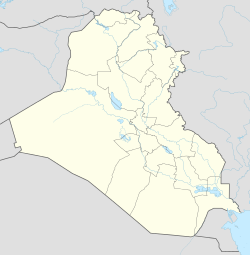On 22 August 1913 the Reform Society of Basra issued its list of demands, which was also published in al-Dustur. Tending to extremes, the list of (nationalistic) demands included the following-
Art. 2 – No concessions to be made to foreigners in our country. It must be protected against foreign intrigues, and foreign influences must be prevented from infiltrating the country.
Art. 4 – Activities related to the existence of the Sultanate and its basic concerns, which are- foreign policy and security, taxes, post and telegraph, legislation, and the imposition of general taxes, are within the jurisdiction of the central government. Activities related to the internal and administrative concerns of the vilayet, and to the complete fulfilment of all those conditions that are essential for its progress and settlement, are within the jurisdiction of the General Council of the vilayet.
Art. 5 – The Vali executes the decisions of the central government and of the General Council. . .
Art. 7 – The General Council has broad authority to discuss anything that is or the benefit of the vilayet . . .
Art. 8 – The General Council has the power to increase the gendarmerie and the police force and to set up guard stations wherever necessary. . .
Art. 9 – The General Council is completely independent and has complete jurisdiction over the Vali and the other officials. . . .
Art. 14 – The central government has the right to appoint the Vali, on condition that he is an Iraqi.
Art. 16 -. . . The Vali may be dismissed by a two-thirds majority in the General Council.
Art. 17 – The income of the vilayet is to be divided into two parts. The first, the income from taxes, post and telegraph, and money paid for exemption from military service, shall be entirely assigned for the headquarters of the Sultanate. The rest, all other income, shall be assigned entirely for the vilayet and be spent within it.
Art. 19 – The local Arabic shall be the official language in all affairs of the vilayet and among its inhabitants. The same shall apply in every courthouse, and all announcements shall be written in Arabic.
Art. 23 – Regular soldiers shall serve in their own vilayet in times of peace, but in times of war the government has the right to send them where it pleases.
Art. 24 – Officers knowing Arabic shall be employed in their own country. . .
Art. 25 – All sciences and arts shall be taught in our schools in Arabic . . .
Source- Tauber, Eliezer. The Emergence of the Arab Movements. Frank Cass, London 1993, pp. 166-167
August 30, 1913
In late August 1913 the society issued a threatening proclamation directed at the Arab soldiers in Iraq and the tribesmen Islamic in orientation, the proclamation warned against the selling of the fatherland by the “heretical group” which had robbed the government of the Islamic caliphate and killed hundreds of innocent people. The authorities were accused of selling Bulgaria and Bosnia-Herzegovina, agreeing to the “Zionist plan” to buy Palestine, losing Rumelia, and harbouring a desire to sell lands of Iraq to foreigners. Inter alia, the government was also accused of seeking to “Turkify” the population and aiming to make Sunday the day of rest, as in Europe.
The proclamation informed its readers that societies of Muslims and non-Muslims had been established in Basra, Aleppo, Beirut and Syria in order to combat these tendencies and demand that the government grant them decentralization; if this was refused, the Arabs would cease to consider it their legal government. Finally, Arab soldiers were urged to unsheathe their swords and force the government to carry out the decentralization, whether it wanted to or not, since only thus could the country be protected against foreigners. The proclamation was favourably received wherever it was seen. In reaction, Enver instructed the new military commandant to arrest Talib, but since the commandant was on friendly terms with him, he retorted that it was beyond his ability-which was in fact quite true.
Source- Tauber, Eliezer. The Emergence of the Arab Movements. Frank Cass, London 1993, p. 167
